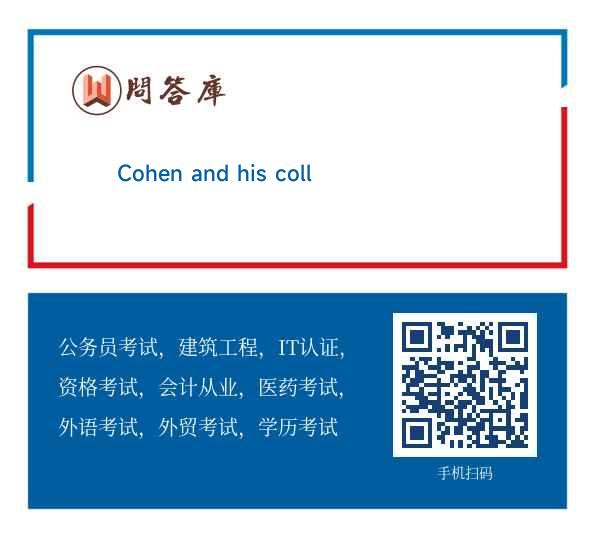Cohen and his colleagues had found in a previo
问题详情
Cohen and his colleagues had found in a previous study that happier people seemed less susceptible to catching a cold, but some questions remained as to whether the emotional trait itself had the effect.
For the new study, the researchers had 193 healthy adults complete standard measures of personality traits, self-perceived health and emotional "style." Those who tended to be happy, energetic and easy-going were judged as having a positive emotional style, while those who were often unhappy, tense and hostile had a negative style.
The researchers gave them nasal drops containing either a cold virus or a particular flu virus. Over the next six days, the volunteers reported on any aches, pains, sneezing or congestion they had, while the researchers collected objective data, like daily mucus production. Cohen and his colleagues found that based on objective measures of nasal woes, happy people were less likely to develop a cold.请帮忙给出正确答案和分析,谢谢!
参考答案
正确答案:科恩博士和他的同事在此前的一项研究中发现比较快乐的人不易患感冒但并不能完全确定这一性格本身是否具有这种“功效”。在这项最新研究中研究人员邀请了193名身体健康的成年人参加了性格特点、健康自评和情绪特点等各项标准测试并将容易快乐、精力充沛、性格随和的人定义为“积极情绪者”;将经常不开心、精神紧张、不友好的人定义为“消极情绪者”。研究人员将带有感冒病毒或某种流感病毒的滴鼻液滴进这些实验对象的鼻中。在接下来的六天里实验对象要每天报告自己是否出现头痛、打喷嚏或鼻塞等症状研究人员则收集实验对象的“日鼻涕量”等观察数据。根据所收集的数据科恩和他的同事发现性格开朗、比较快乐的人不容易患感冒。
科恩博士和他的同事在此前的一项研究中发现,比较快乐的人不易患感冒,但并不能完全确定这一性格本身是否具有这种“功效”。在这项最新研究中,研究人员邀请了193名身体健康的成年人参加了性格特点、健康自评和情绪特点等各项标准测试,并将容易快乐、精力充沛、性格随和的人定义为“积极情绪者”;将经常不开心、精神紧张、不友好的人定义为“消极情绪者”。研究人员将带有感冒病毒或某种流感病毒的滴鼻液滴进这些实验对象的鼻中。在接下来的六天里,实验对象要每天报告自己是否出现头痛、打喷嚏或鼻塞等症状,研究人员则收集实验对象的“日鼻涕量”等观察数据。根据所收集的数据,科恩和他的同事发现,性格开朗、比较快乐的人不容易患感冒。
